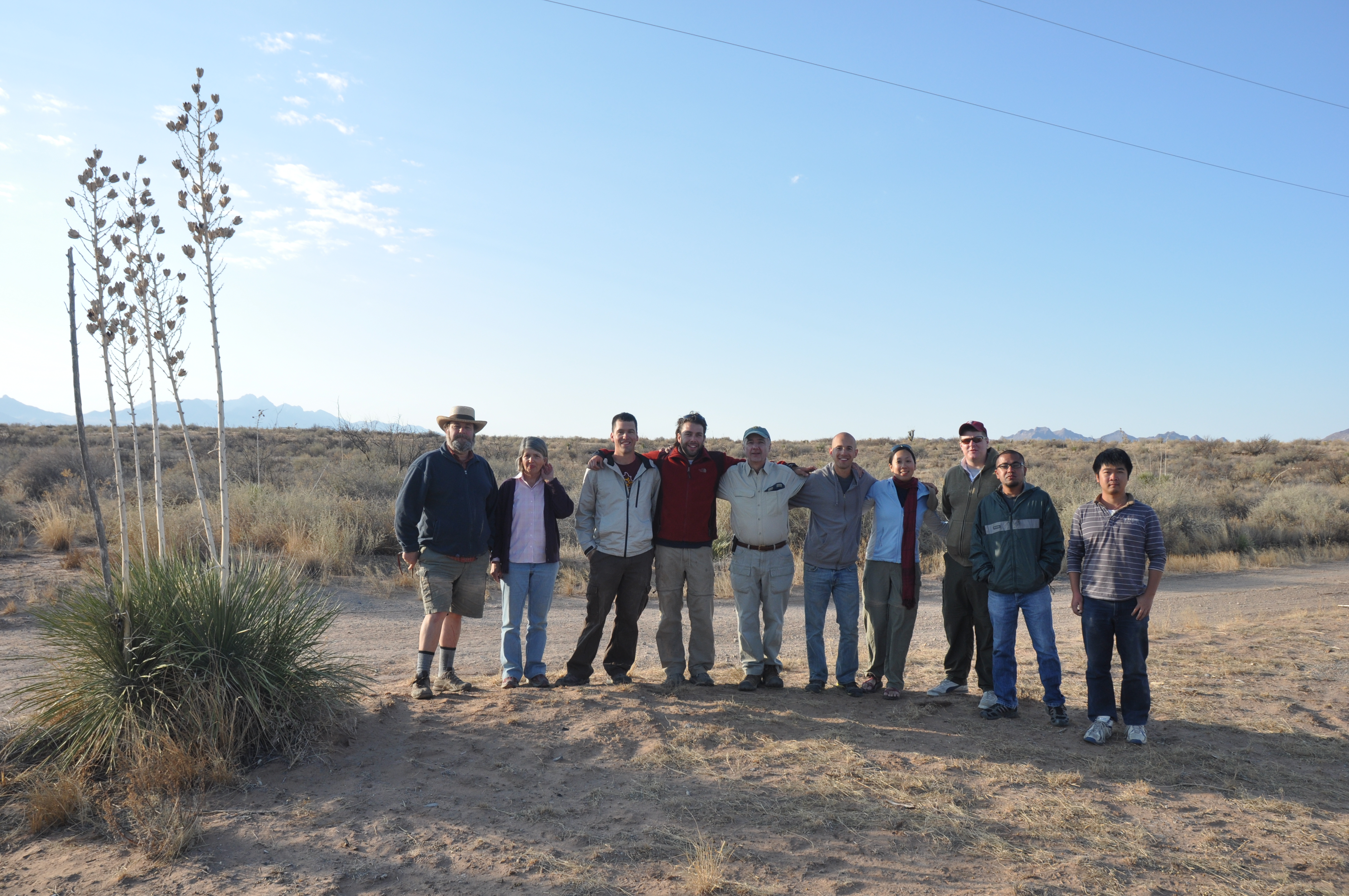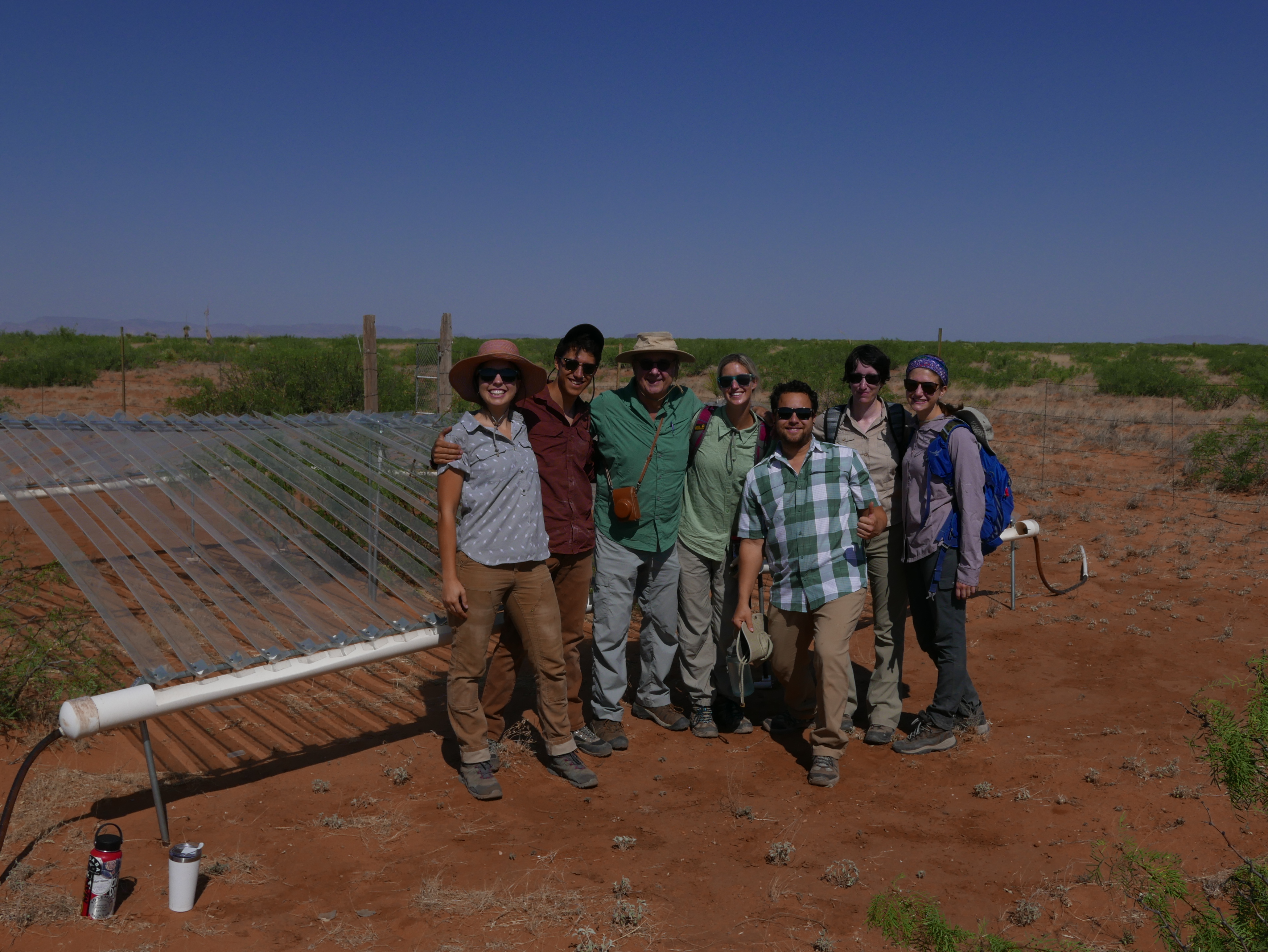Osvaldo Sala begins tenure as President of the Ecological Society of America for 2019–2020 term
Friday, August 16, 2019
FOR IMMEDIATE RELEASE
Contact: Alison Mize, 202-833-8773 ext. 205; Alison@esa.org
 Osvaldo Sala, a Regents and Foundation Professor at Arizona State University and the Julie A. Wrigley Chair in Life Sciences and Sustainability, became President of the Ecological Society of America (ESA) August 16 during the Society’s annual meeting in Louisville, KY. Sala is the first Hispanic person to serve in this role in the organization’s over-100-year history.
Osvaldo Sala, a Regents and Foundation Professor at Arizona State University and the Julie A. Wrigley Chair in Life Sciences and Sustainability, became President of the Ecological Society of America (ESA) August 16 during the Society’s annual meeting in Louisville, KY. Sala is the first Hispanic person to serve in this role in the organization’s over-100-year history.
Elected by the members of ESA for a one-year term, Sala presides over the world’s largest professional society of ecologists. Its membership is composed of 9,000 researchers, educators, natural resource managers, and students, reflecting the diverse interests and activities of the Society. As President, Sala now chairs ESA’s governing board that establishes the Society’s vision, goals, and objectives. He is leading the effort to broaden the scope of the Society by trying to reach a larger and more diverse group of ecologists. Emphasis will be put on fostering the participation of ESA ecologists in the international stage.
“Sala’s stellar career achievements embody his value of a diversity of perspectives across scientific disciplines. Under his leadership, ESA is poised to continue and expand its national and international influence in the ecological field and other sectors,” said Catherine O’Riordan, ESA executive director.
ESA publishes a membership bulletin and five journals of cutting-edge ecological research, which often lead to solutions that address societal challenges. In addition, the Society provides an excellent forum for the exchange of ideas at their annual August meeting. ESA combines activities that foster ecological research with outreach and education from the undergraduate to graduate levels. The commitment to diversity and inclusiveness among its membership acts synergistically with its activities to foster ecologists’ career development in academia, government, and the private sector. Increasingly, ecologists are needed to apply their knowledge to inform sound ecological decisions made by local, state, and federally elected officials, nongovernmental organizations, and the business sector.
Sala is an international leader in ecological science and global environmental policy. He is considered a world expert in the functioning of dryland ecosystems and in the development of global biodiversity scenarios. His work spans continents, from the Patagonian Steppe and grasslands of the Great Plains of North America to arid ecosystems of South Africa and the annual grasslands of California. Currently, most of his experimental work focuses on the southwest of the USA and specifically the Chihuahuan Desert at the Jornada Long Term Ecological Research site.

Field trip with graduate students to the Chihuahuan desert as part of ASU PhD program on Environmental Life Sciences. Photo courtesy of Osvaldo Sala.
“Our world is interconnected and transcends borders. There are pressing environmental problems like drought and climate change that require collaboration between ecologists who live in many different countries and landscapes. Our planet is one large global ecosystem, and only by working across borders can we contribute to the solutions needed for nature and people,” said Sala.
He founded the Global Drylands Center at Arizona State University in 2017 to engage key stakeholders in dryland stewardship and develop solutions for arid ecosystems around the world. Tackling the most pressing ecological questions requires interdisciplinary collaboration. Sala’s career is an example of the importance of interdisciplinarity as shown by the many articles in which he has collaborated with geologists, social scientists, statisticians, and humanists.

Osvaldo Sala after a day of working in one of the rainfall manipulation experiments in New Mexico with graduate and undergraduate students. The effect of interactions among species overshadow the effect of climate change. Photo courtesy of Osvaldo Sala.
“My work is driven by questions and in working with scenarios as a way of simplifying, understanding, and communicating the complex relationships that emerge from the study of social-ecological systems. I use different tools from direct observations, manipulative field experiments, to simulation modeling,” said Sala.
After receiving an undergraduate degree from the University of Buenos Aires, Sala earned an MS and PhD in Ecology from Colorado State University. He is the recipient of numerous professional honors and recognition. His work is published in more than 200 peer-reviewed publications.
He is an elected member of the American Academy of Arts and Sciences, the Argentinean National Academy of Sciences, and the Argentinean National Academy of Physical and Natural Sciences as well as a fellow of the American Association for the Advancement of Science and the Ecological Society of America. He has served in international and national leadership roles on projects and reports with the Scientific Committee of Problems of the Environment, Millennium Assessment, the Intergovernmental Panel on Climate Change and the National Science Foundation.
###
The Ecological Society of America, founded in 1915, is the world’s largest community of professional ecologists and a trusted source of ecological knowledge, committed to advancing the understanding of life on Earth. The 9,000 member Society publishes five journals and a membership bulletin and broadly shares ecological information through policy, media outreach, and education initiatives. The Society’s Annual Meeting attracts 3,000-4,000 attendees and features the most recent advances in ecological science. Visit the ESA website at https://esa.org.